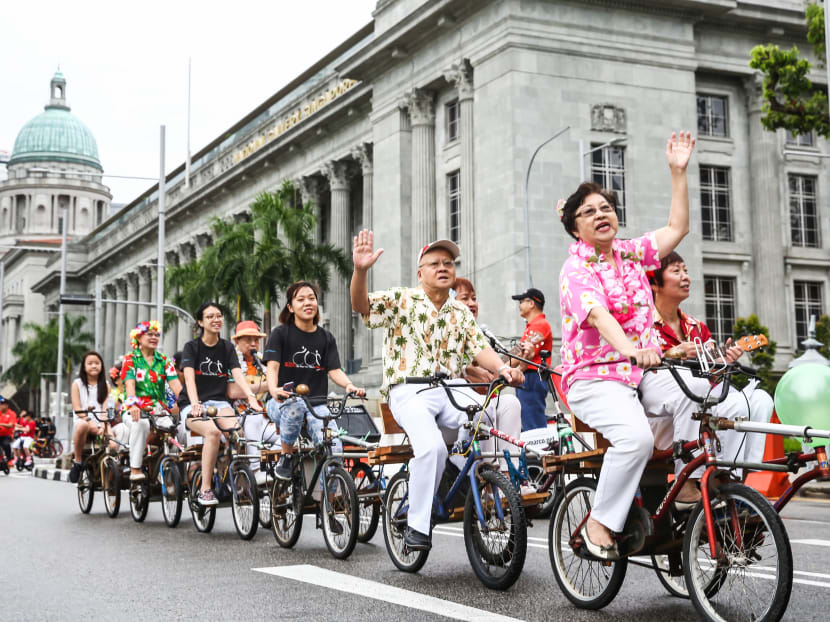S’porean men healthier, less depressed or anxious in old age compared to women: Study
SINGAPORE — Preliminary findings from a first-of-its-kind study of seniors, which was launched here two years ago, have found that Singaporean men appear to be healthier in old age compared to Singaporean women.

Singaporean men appear to be healthier in old age compared to Singaporean women, according to preliminary findings from a first-of-its-kind study of seniors. TODAY file photo.
SINGAPORE — Preliminary findings from a first-of-its-kind study of seniors, which was launched here two years ago, have found that Singaporean men appear to be healthier in old age compared to Singaporean women.
The initial results of SG90 Longevity Study showed that Singaporean men are less likely to have impaired cognition (30 per cent in men, compared to 39 per cent in women) and more likely to be independent in their daily activities (47 per cent compared to 34 per cent).
More male respondents were also found to have a positive outlook of their health, and are less depressed or anxious compared to women.
The 10-year study, which is being carried out by the Agency for Science, Technology and Research (A*Star) and the National University Health System (NUHS), involves about 1,500 elderly individuals in Singapore aged 90 years old and above.
Its purpose is to identify what contributes to healthy ageing and longevity, whether it be genetics, diet or lifestyle. The seniors have been getting extensive health screenings, such as brain scans, to measure their biological markers, and have follow-up checks every six months or every year to track their health.
Announcing the initial findings at the Biology of Ageing Conference on Tuesday (Nov 14) held at the Grand Copthorne Waterfront Hotel, A*Star chairman Lim Chuan Poh said: “These insights will go a long way to help us design impactful interventions to maximise the health span of the elderly in our society.”
He added that going forward, the researchers hope to uncover the reasons behind gender difference playing a part in healthy ageing, and understand whether it stems from educational differences, family support, or other considerations.
In the long run, the researchers aim to reverse the gender disparity by introducing specific intervention measures which will allow both men and women to live their best lives.
In another study, conducted by A*Star and the National University of Singapore, scientists have identified a population of immune cells that do not show signs of ageing, and are important for fighting infections such as tuberculosis, as well as cancer.
By further studying this population of cells, the team hopes to identify the factors leading to this quality of resistance to ageing, and find ways to harness these factors to slow down the body’s overall ageing process. This study began in 2009 and involves 3,200 Singaporean men and women aged 55 and above.








